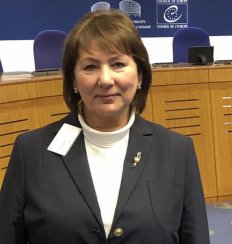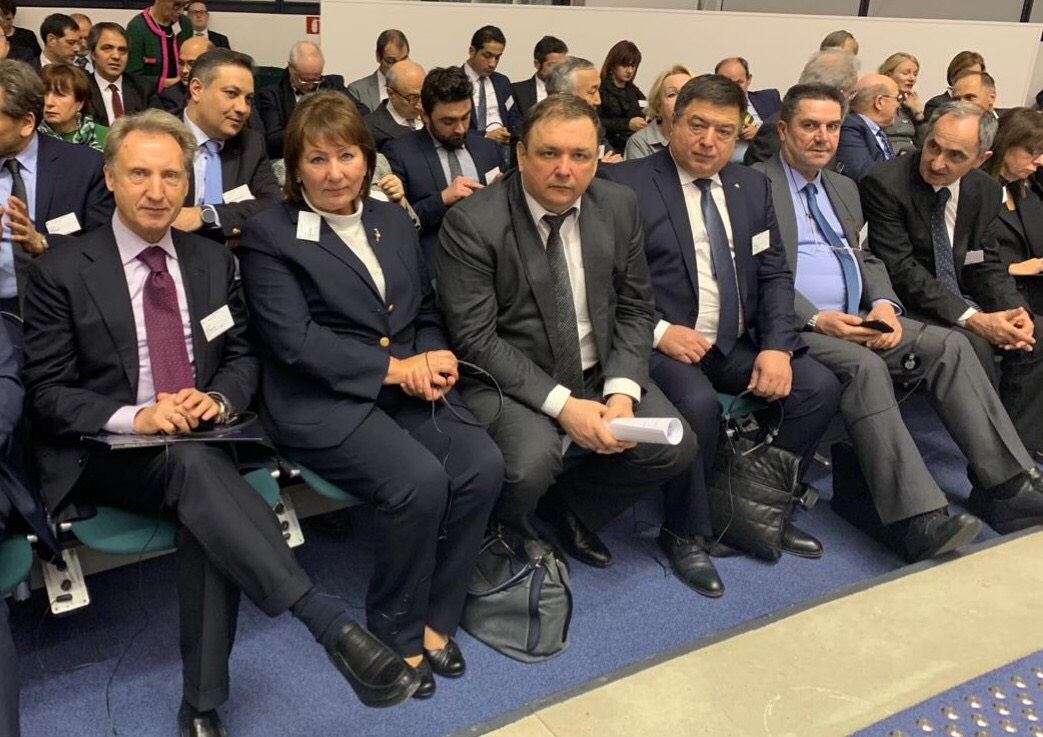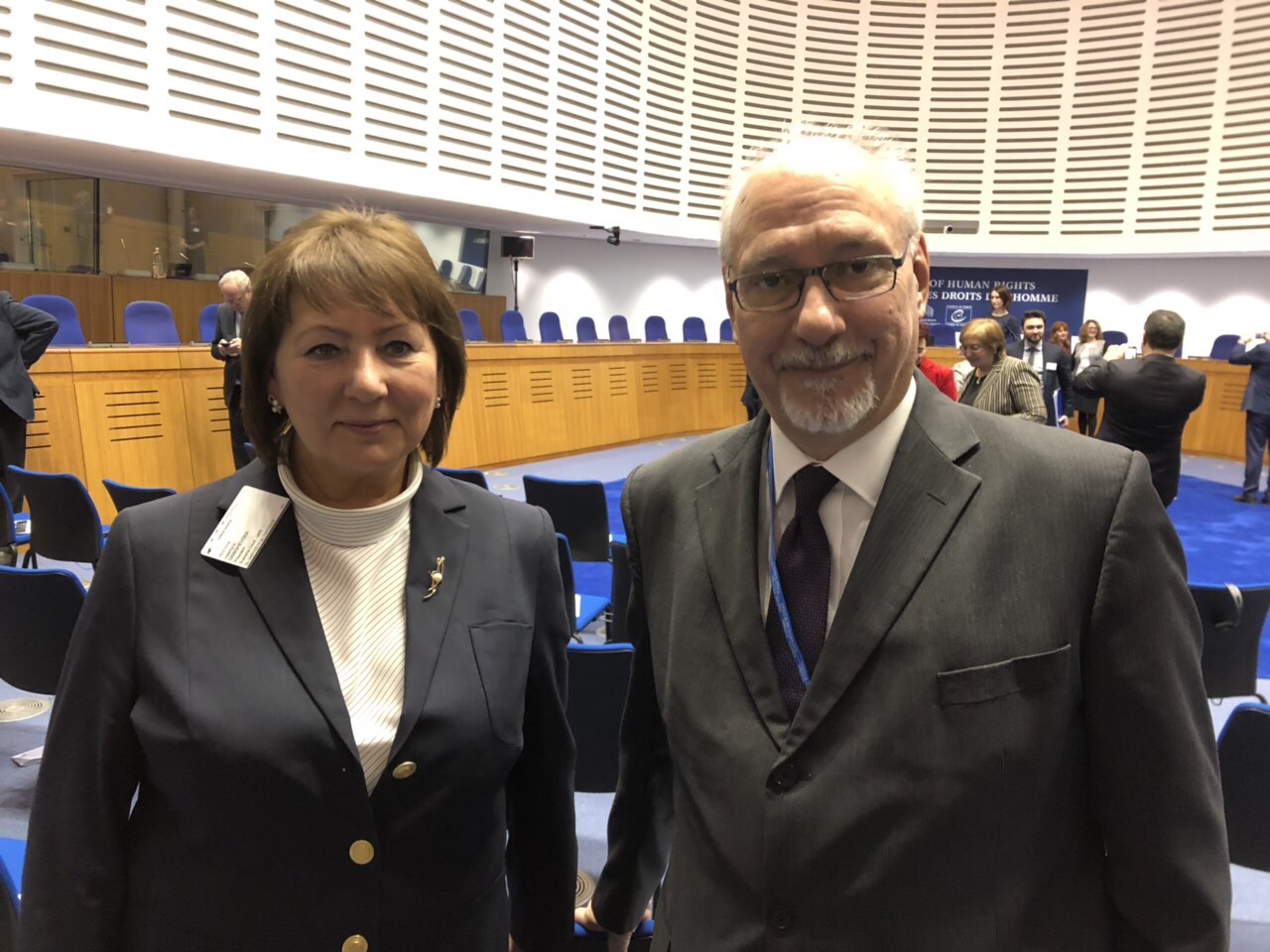Contact center of the Ukrainian Judiciary 044 207-35-46

On 25 January 2019 the President of the Supreme Court participated in the seminar “Strengthening Confidence in the Judiciary” and the solemn event on the occasion of opening the judicial year in the European Court of Human Rights.
The participants of the seminar discussed the appointment, promotion and dismissal of judges, strategies to build confidence and the responsibility of other authorities to enhance and protect the judiciary, as well as the justification of judgments.
While this seminar the President of the European Court of Human Rights Guido Raimondi remarked that strengthening confidence in judges considerably depended on the judges and their ability to adopt judgments without double standards.
Mr. Raimondi noted that the participants should remember that judges were under the watchful eye of society not only at work, but also during non-working hours. Any trust is very fragile, it needs to be defended and strengthened through the quality of judgments, justice, the status of judges and the protection of the judiciary. Thus, there has to be a comprehensive approach to strengthening confidence in the judiciary and a permanent dialogue at the highest level, as well as the awareness about the problems of each other. The present seminar would help its participants with this.
The ECHR judges Ksenija Turković and Gabriele Kucsko-Stadlmayer, the member of the Venice Commission and the Professor of the University of Zagreb Jasna Omejec, the Prosecutor General of Romania and the Professor of the University of Alba Iulia Augustin Lazăr also presented their speeches.

Just after the seminar, the ceremony of solemn opening the judicial year of the European Court of Human Rights took place.
While starting the event, the ECHR President presented his opening speech, where he summarized the work of the Court for 2018 and put emphasis on important events, amongst which he outlined entering into force of the Protocol No. 16 to the European Convention on Human Rights and Fundamental Freedoms.
In his speech, the ECHR President Guido Raimondi remarked that for 60 years the ECHR had been contributing to the harmonisation of European standards concerning rights and freedoms. This collective guarantee mechanism emerged from the willingness of Europeans who, having been traumatised by the atrocities of the Second World War, expressed, in adopting the European Convention on Human Rights, their attachment to democracy, to freedoms and to the rule of law. Above all, they set up a Court to ensure that their own obligations would be complied with.

Throughout this sixty-year period, the Court has interpreted the Convention dynamically in the light of living conditions, which have evolved considerably. Europe in the 1950s and the world we now live in are very different places. Our ways of life and moral standards are no longer the same. Science, medicine and biology have seen outstanding progress. The collection and retention of data concerning individuals, and the appearance of the Internet, with the extraordinary but also worrying consequences of these developments, have had a radical effect on our lives but also on the relations between the State and individuals, and between individuals themselves.
The ECHR President informed about the Court activity for 2018 and emphasized that the biggest challenge for the Court was undoubtedly the volume of cases which cannot be dealt with by a committee on account of their complexity or the novelty of the questions raised.
“Our aim is to ensure that the Court can devote enough time to the most important and most complex of these cases so that they can be processed as soon as possible” – the speaker underlined.

Guido Raimondi noted that at worldwide level too, the changes had been far-reaching: migratory flows and environmental problems, not to mention the threat of terrorism, have altered our perception of the world and how we live.
In his opinion, the Court managed to cope with the challenge of these new changes. At a procedural level, the Court, which was set up in 1959, adapted itself to a new mechanism which represented a change of model, that of a single and full-time Court which radically transformed the original system. In 2018 we celebrated the twentieth anniversary of the “new” Court; twenty years during which period the Court has delivered a judgment or decision in over 800,000 applications. It now enjoys worldwide renown and is seen as a model for others. I would even say that it is a beacon which lights the way for all those, throughout the world, who seek to strengthen the principles of the rule of law and democracy.
“All of us, judges of superior domestic courts and international judges, have a role to play in the protection of democracy and the rule of law” – the ECHR President reminded.
The President of the French Constitutional Council Laurent Fabius also presented his speech as the guest of honour at the ceremony of opening the judicial year in the ECHR.
The reporter noted about such challenges to our era as threats to freedoms and the rule of law, permanent increase of attacks on fundamental rights, be they measures casting doubt on the independence of the judiciary and media freedom, access to the fundamental right to asylum, or the increased instances of arrests of political opponents.
The President of the French Constitutional Council called judiciary representatives for acting with unfailing vigilance to strike a harmonious balance between all of the principles and rules that are safeguarded by the text of the European Convention for Human Rights.
“Through our decisions and our conduct, we, as the guardians of fundamental rights, must stand together to oppose the madness of those Janus-like leaders and States, who show a supposedly liberal face but whose other side is decidedly authoritarian”, – Laurent Fabius remarked.
In general, 330 representatives of world-wide judiciary and local and national authorities participated in the official ceremony of opening the judicial year of the ECHR.
